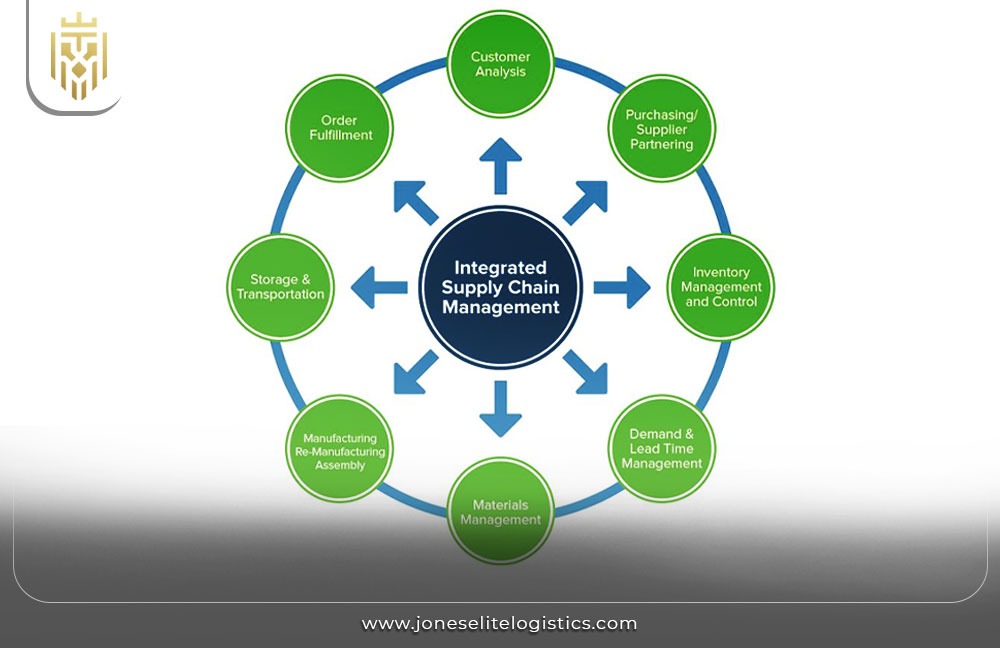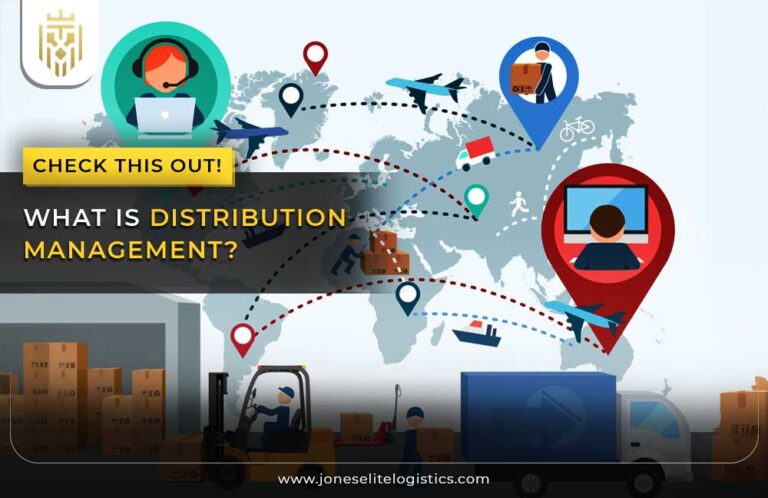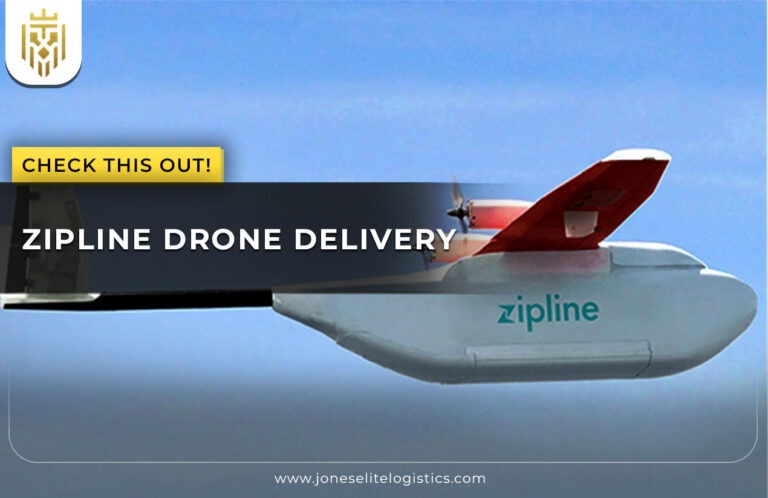Why is Information Technology (IT) Important in Supply Chain Management?
The role of IT in supply chain management is crucial, as it provides essential tools for collecting and analysing data. These tools support the execution of strategies, enabling companies to make data-driven decisions. Effective supply chain management requires IT to handle supply chain disruptions, ensure timely operations, and adapt to market changes, which optimizes its overall performance and increases efficiency throughout the supply chain. By integrating various functions like inventory management, procurement, and project management, IT enhances visibility, accuracy, and control, making the entire process more reliable and resilient.

Role of IT in Supply Chain Management:
The role and importance of IT in Supply Chain Management is huge, as it enables seamless communication, data flow, and operational efficiency across all sectors of the supply chain. With the growing complexity of the digital supply chain, leveraging IT helps companies maintain a competitive edge. Supply chain managers rely on these tools to streamline their operations, monitor inventory levels, and manage the flow of goods and information more effectively. IT also assists by providing supply chain analytics and assisting with supply chain planning solutions that help ensure businesses are ready to meet changes in customer demand and maintain inventory accuracy.
Inventory Management:
In a supply chain, IT enhances inventory management by providing real-time visibility, automating tracking and replenishment processes, and optimizing stock levels through advanced analytics. This application of IT reduces manual labour, increases accuracy, and leads to better inventory decision-making, improving overall management supply chain efficiency. It also aligns with supply chain planning efforts, ensuring companies have the right amount of inventory to meet customer demand without overstocking. By using supply chain technology, companies leverage the accurate data of its inventory forecasting to reduce waste, minimize stockouts, and improve profitability.
Supply Chain Visibility:
IT plays a crucial role in supply chain visibility by using technologies like Internet of Things (IoT), Radio Frequency Identification (RFID), and cloud computing. These tools provide real-time data on inventory levels, production status, and logistical movements, enabling quicker, informed decisions across the supply chain. Enhanced visibility leads to a more resilient supply chain, as it allows supply chain management professionals to respond promptly to disruptions and supply chain disruption risks. With greater visibility, companies can track their entire supply chain and ensure that issues are addressed before they become costly problems.
Product Improvement:
Product improvement in the supply chain is facilitated by IT with process automation, enhancing data flow, improving shipment tracking, and optimizing warehouse management systems. These advancements lead to improved product quality and faster, more efficient supply chain operations. Moreover, this helps supply chain analysts identify areas for cost savings and efficiency gains within the supply chain function. With data-driven insights, product improvement initiatives can focus on refining processes across all stages of the supply chain, from raw materials to final product delivery.
Cost Reduction:
IT enables cost reduction within supply chain management by streamlining operations through automation. With technology supply chain tools like advanced analytics and real-time monitoring, businesses can optimize processes, minimize inefficiencies, and reduce overall costs. This reduction is particularly evident in areas like procurement, transportation management systems, and supplier relationship management, where automation and data insights drive more efficient supply management. By integrating cost-saving technologies, businesses can maximize resource utilization, reduce lead times, and maintain optimal inventory levels, all contributing to a more cost-effective supply chain.
Functional Roles of IT in Supply Chain Management:
Efficient supply chain operations are achieved with IT through process automation, increased accuracy, and enhanced real-time data sharing, all of which streamline workflows and improve overall effectiveness. IT tools also improve overall effectiveness by integrating various systems, enabling better coordination and collaboration among supply chain managers, suppliers, and other stakeholders.
Collaboration and Coordination:
IT enhances collaboration and coordination within the supply chain management by connecting stakeholders via integrated platforms. This real-time data sharing improves communication, ensuring that all parties are aligned for more efficient and effective operations within the management supply chain. Supply chain leaders can oversee the entire network, ensuring that supply chain professionals work together cohesively to meet goals. Digital supply chain management is further enabled by these platforms, creating smooth coordination and improved performance across the global supply chain, from suppliers to end consumers.

Transaction and Execution:
By integrating systems for order processing, payments, and inventory management, IT streamlines transaction and execution processes. This integration boosts precision, reduces errors, and accelerates workflows, leading to more efficient and reliable results in supply chain management. Automating these tasks frees up chain managers to focus on more strategic activities, enhancing overall operational performance. It also enables real-time monitoring of transactions, ensuring that supply chain professionals have the tools necessary to maintain quality, transparency, and cost control in the supply chain.
Decision Support:
IT provides essential decision support through real-time analytics, helping supply chain managers analyse data from various sources. This aggregated data is crucial for making informed, data-driven decisions and for strategic planning within the digital supply chain. Effective supply chain management software helps companies react quickly to changes in customer demand, ensuring that all supply chain activities are aligned with market needs. Supply chain leaders can use these insights to identify trends in demand, assess risks, and develop strategies for long-term success within a fast-changing supply chain landscape.
Benefits of IT in Supply Chain:
The role of IT in logistics and supply chain management is highly significant in improving efficiency, reducing costs, and enhancing collaboration. By optimizing processes and increasing supply chain visibility, IT enables businesses to stay agile and competitive in today’s fast-moving markets. .
Improved Order Management:
IT streamlines order management by automating order entry, tracking, and fulfilment. This automation reduces errors, improves accuracy, and ensures that updates across the supply chain are timely. Companies study supply chain management and use supply chain planning solutions to quickly respond to fluctuations in demand, avoid delays and stockouts. Automated order management systems enable faster processing of orders, improving lead times and customer satisfaction. These systems also integrate with procurement to ensure orders are completed without delays caused by inventory shortages.

Improved Inventory Management:
Through advanced tracking systems and real-time analytics, IT helps optimize inventory management by preventing stock-outs and excess inventory. This real-time insight enables better demand forecasting and stock level optimization within the supply chain. As a result, businesses can maintain a healthy balance between supply and customer demand. Supply chain management software plays an essential role in maintaining real-time visibility of inventory levels, ensuring that stock is optimized at all times, and minimizing the risk of disruptions.
Customer Focus:
IT enhances customer service by improving responsiveness with a customer relationship management (CRM) software for the supply chain process. With real-time tracking, automated updates, and efficient order fulfilment, IT ensures timely and accurate delivery, fostering greater customer satisfaction. Cloud-based CRM tools enable better communication with customers, providing them with real-time updates on their orders, while also allowing businesses to track customer interactions and manage relationships effectively across the entire supply chain.
Quick Transmission Of Information:
IT facilitates the quick transmission of information across the technology supply chain by integrating communication systems and enabling real-time data sharing. This allows businesses to polish their supply chain management process, as it helps them make rapid decisions and ensures timely updates, enhancing overall efficiency within the digital supply chain. Faster data transmission ensures companies are equipped to handle supply chain disruptions and respond to changes in demand, providing them with a competitive edge in managing both day-to-day operations and larger strategic initiatives.
FAQs
1) Why IT is Important in Supply Chain Management?
IT plays a vital role in supply chain management by providing tools for data collection and analysis. These tools enable data-driven decision-making and support strategy execution, optimizing performance and improving efficiency and effectiveness across the entire supply chain.
2) What is the Role of IT in Supply Chain Management?
IT is vital in supply chain management, enhancing communication, data flow, and efficiency. It improves inventory management with real-time visibility and automation, increases supply chain visibility using IoT and RFID, supports product improvement, and reduces costs through process optimization and advanced analytics.
3) What is the Functional Role of IT in Supply Chain Management?
IT plays a functional role in supply chain management by automating processes, improving accuracy, and enabling real-time data sharing. It enhances collaboration, automates transactions, and provides decision support through analytics, leading to better communication, faster operations, and informed, data-driven decisions across the supply chain.
4) What are the Benefits of IT in Supply Chain?
IT significantly enhances supply chain management by improving efficiency, reducing costs, and boosting collaboration. It streamlines order management, optimizes inventory through real-time analytics, improves customer service with CRM tools, and enables rapid decision-making via quick, real-time data sharing.









